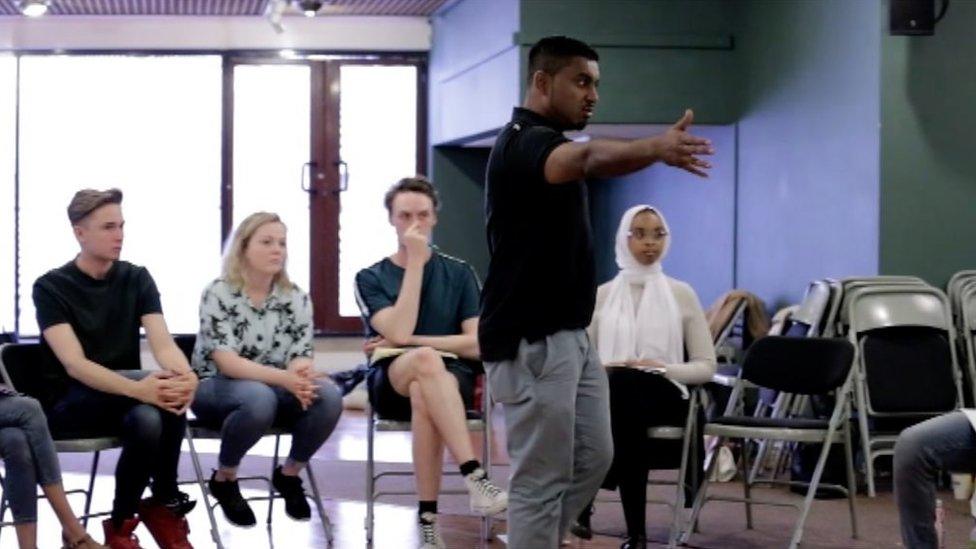Covid arts: How virtual reality alleviated lockdown isolation
- Published
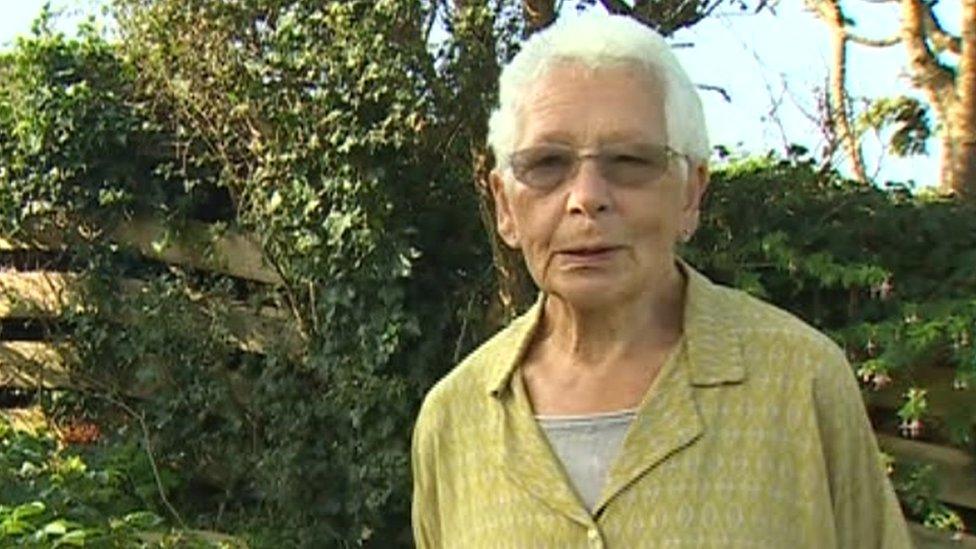
"It is a very immersive experience - it did make me a bit seasick though," says Su Wall
Virtual reality glasses have helped isolated people connect with art during lockdown.
The project by Cardiff University and the charity Nesta aimed to use the arts to help people badly affected by Covid-19 restrictions.
Artist and retired teacher Su Wall, 85, from Pwllheli, was among those to find escapism by wearing a VR headset.
The project also helped deaf and disabled people to share their lives with the world.
Y Lab, which runs the project, is a centre for research and innovation, and one aspect of its work is its focus on arts and wellbeing.
Arts and health programme manager Rosie Dow said: "Creativity has a vital role to play in supporting people's health and wellbeing.
"We really had to innovate and adapt to the new world quite quickly, and this project was all about working out how we could do that."
Escapism
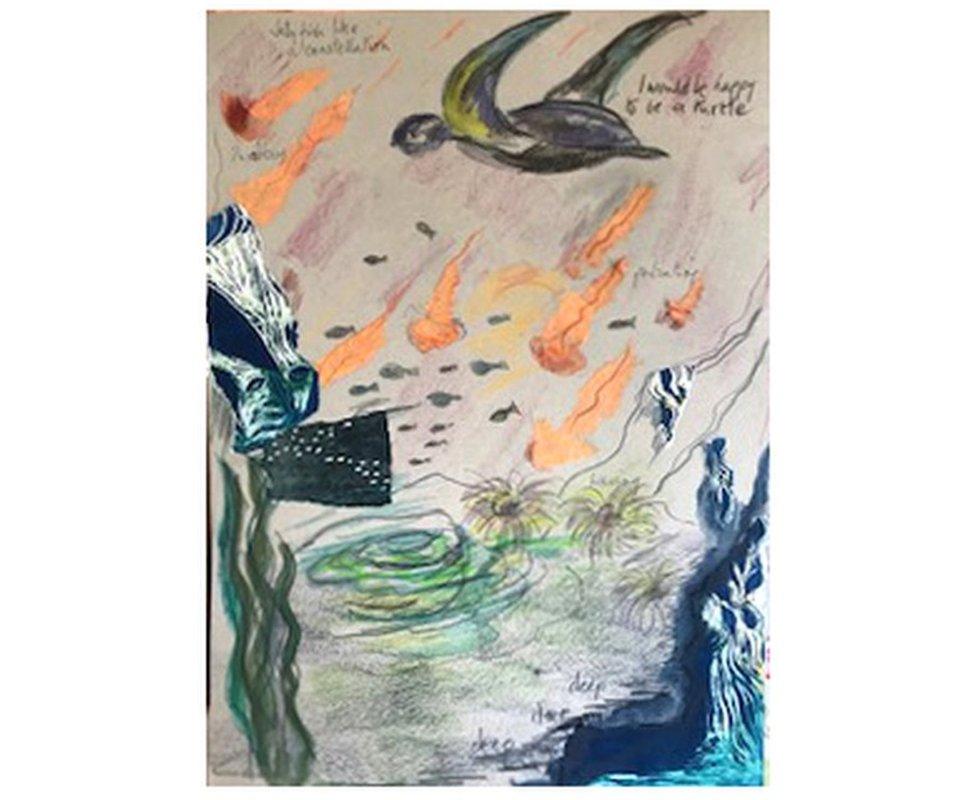
Su Wall's artwork inspired by a virtual "swim" with turtles

One of the participants was Ms Wall, who lives in a remote location and was cut off from others as lockdown began.
A friend involved in the project delivered a Google Cardboard goggles device which converts a smartphone into a virtual reality headset.
She said the project had helped reignite her creativity "once I had overcome the technology".
"I had done weeks of nothing... It seemed to unlock the door."
Participants were asked to immerse themselves in virtual reality videos which included the experience of being in a balloon at the edge of the earth's atmosphere, on a Caribbean beach or at the side of a stream on a high mountain.
They had to either draw, or write down words that came to mind, and share them with other members of the group online.
Su said: "It is amazing. It is a very immersive experience. It did make me a bit seasick though.
"At one point I wrote, 'I wouldn't mind being a turtle,' and I really meant that. Don't they have a lovely life, sailing along and gobbling up jelly fish? Wonderful."
'The performing arts should not be forgotten'
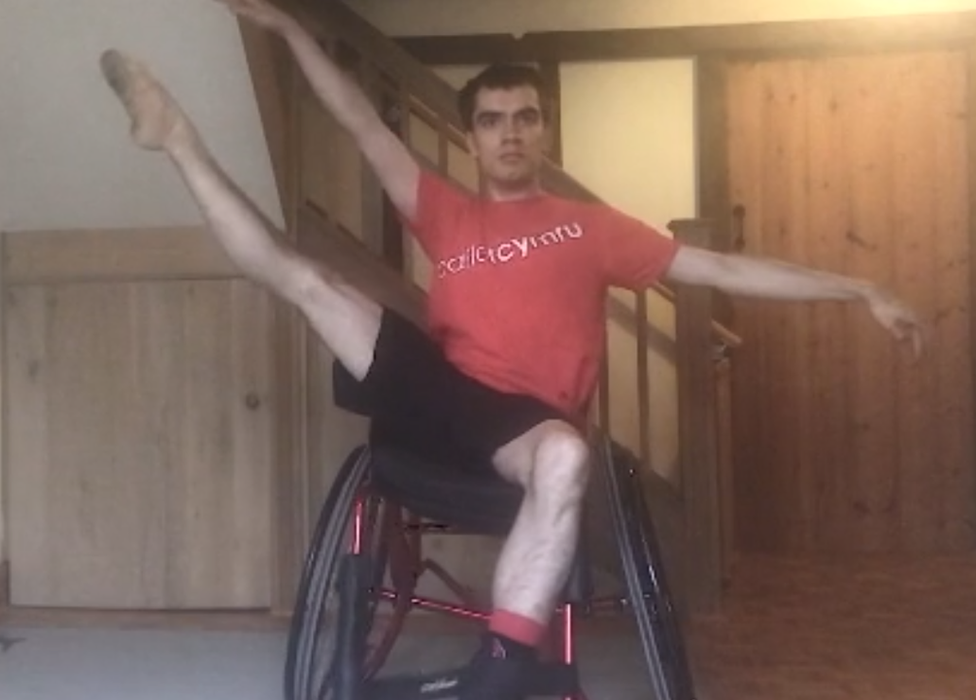
"It is important that we don't forget that deaf and disabled artists are still there," says Joe Powell-Main
Joe Powell-Main was coming to the end of his apprenticeship with Ballet Cymru, and was shortly due to join the company as a professional dancer, when Wales went into lockdown.
The 22-year-old dancer uses a wheelchair, and wanted to share his dancing with the outside world during lockdown.
"One of my fellow dancers here at Ballet Cymru sent me the link to be involved in the project," he said.
He recorded himself dancing at home in his wheelchair and shared the video, entitled Y Ddraig, online.
"I have created a short piece around my passion for dance. It is basically a response to the current situation, and to say the performing arts - and dance - should not be forgotten.
"It is important that we don't forget that deaf and disabled artists are still there... This project was great at highlighting all the different artists out there in the world."
The organisers said the project may run again as lockdown restrictions are re-introduced.
"A lot of the people who have taken part in the project, I still haven't met," said Ms Dow.
"Despite all those challenges they were really able to reach a lot of people, and to show it is possible to...deliver high-quality, creative work, even when you can't be in the same room as someone else."
- Published11 September 2020
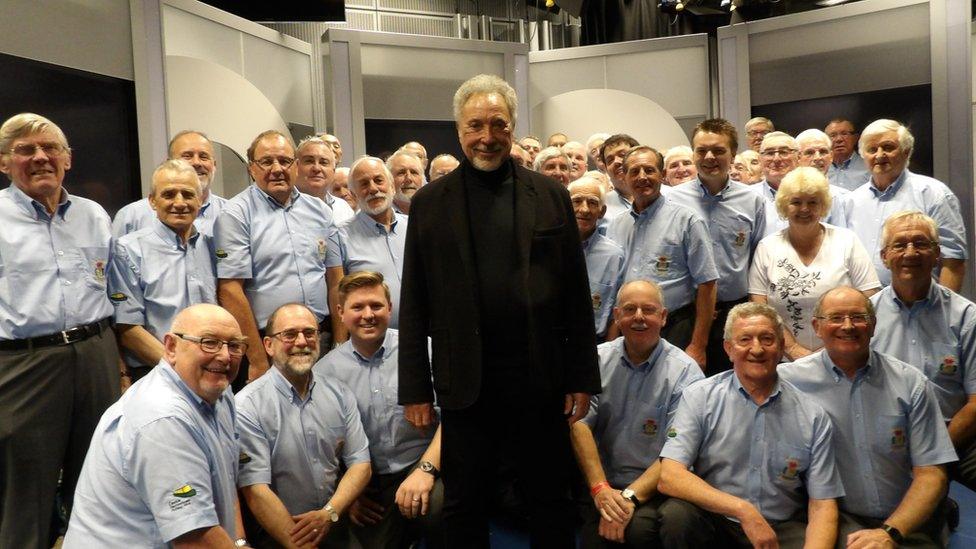
- Published28 July 2020
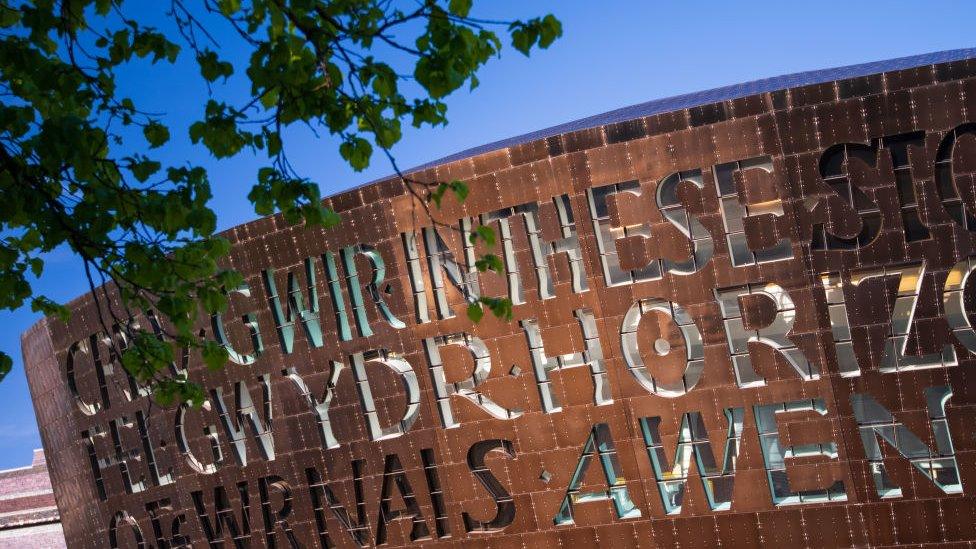
- Published14 July 2020
